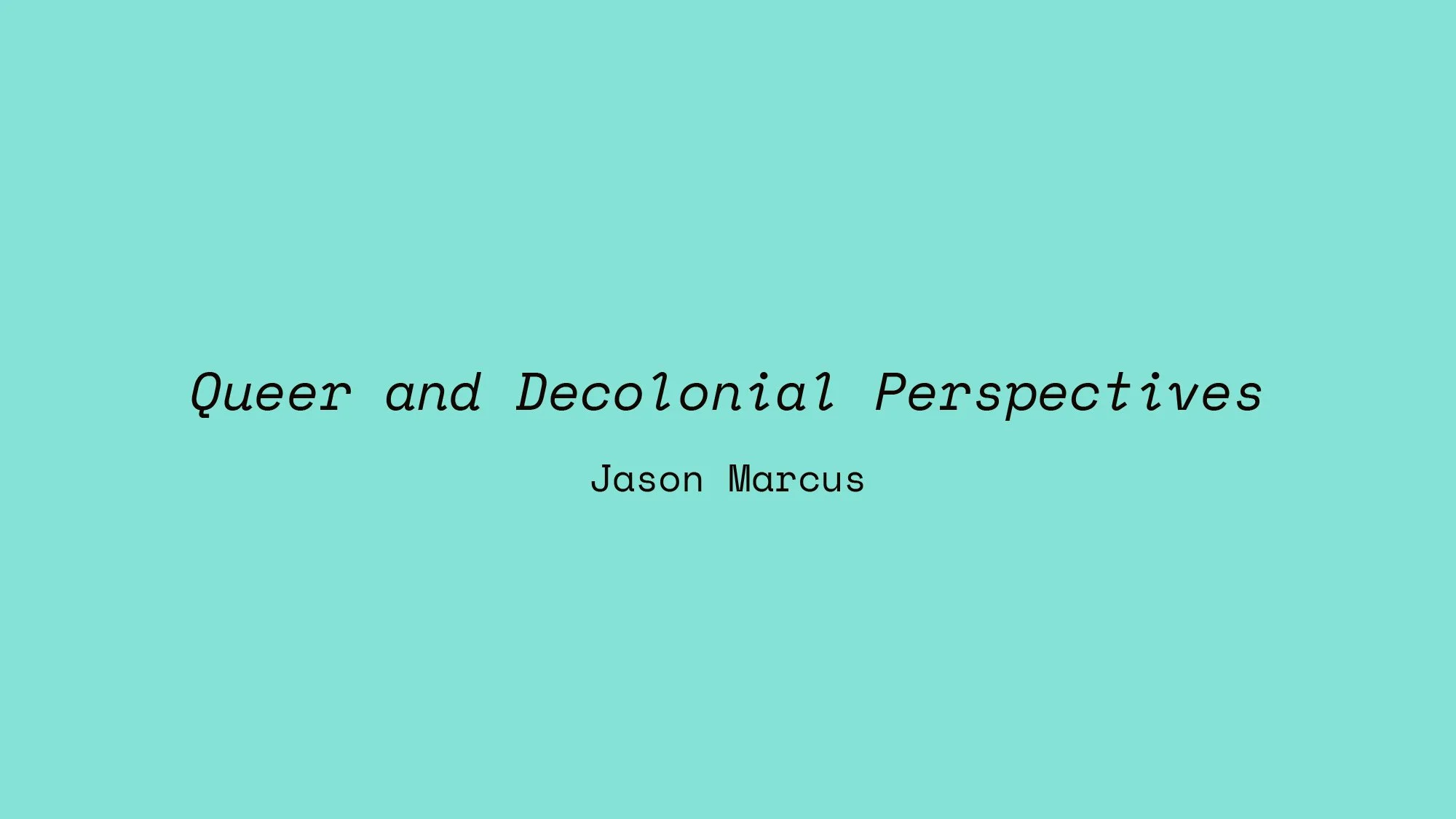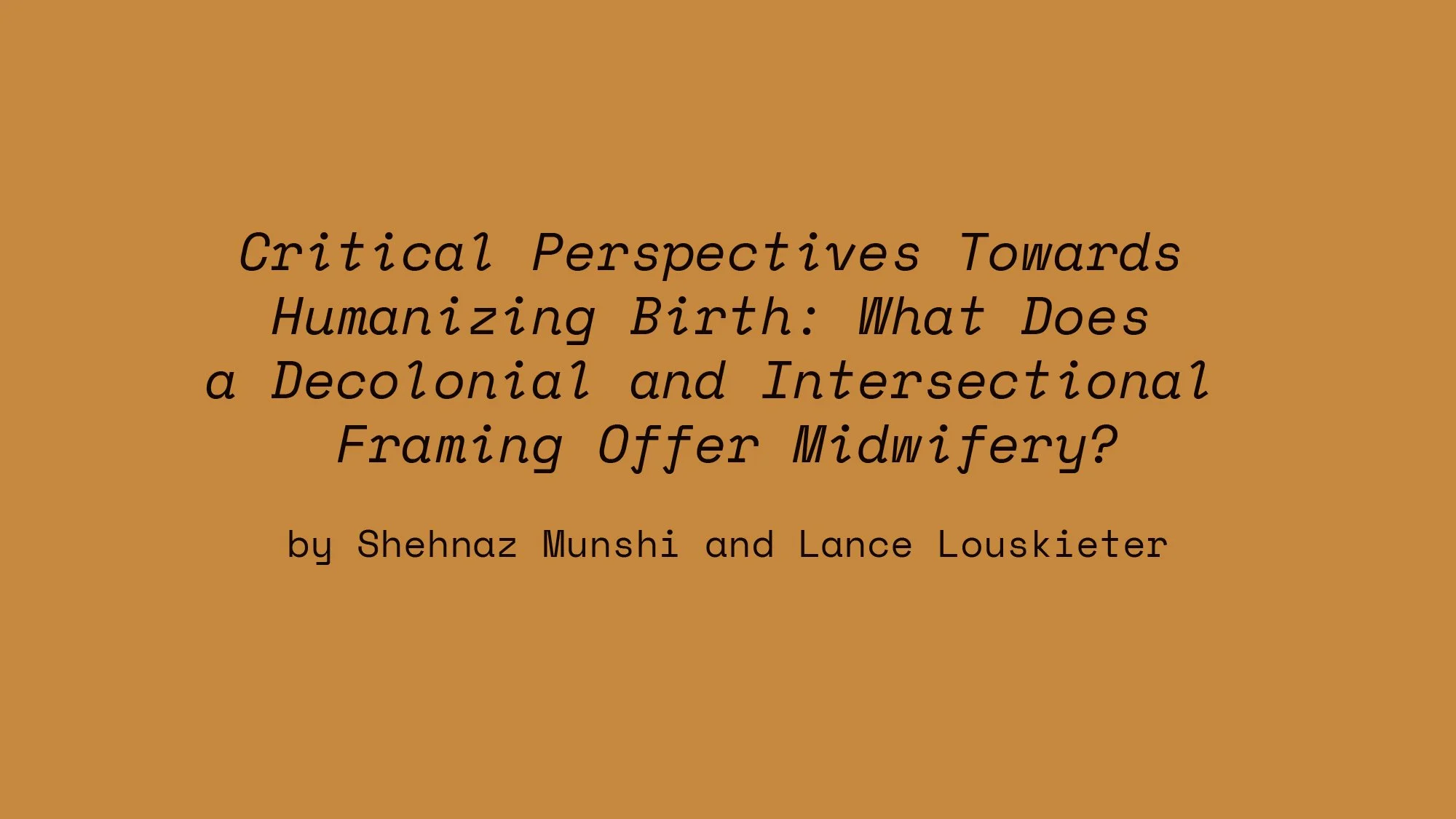
Part 2
Queer and Decolonial Perspectives
Critical Midwifery Studies
Part 2 is co-hosted by the University of Capetown.
Queer and Decolonial Perspectives
by Jason Marcus
An introduction to queer and decolonial perspectives by Jason Marcus.
Dig deeper
Visual Notes

Haunting Birth: Gender, Coloniality and Obstetric Violence
by Rachelle Chadwick
This lecture will explore the colonial, racist, and gendered narratives of bodies and medicalization that continue to shape birth in diverse contexts. Focusing particularly on the South African context, the talk will unpack how long lines of structural and historical power relations materialize in diverse birth narratives. Heeding Mohanty’s (2003) call to adopt feminist methodologies that explore both differences and commonalities, the lecture will foreground how birth assemblages (across race and class differences) vitalized different understandings of risk, ‘the natural’, choice, and care. While focusing on the long reach of structural power relations as modes of ‘haunting birth’, the lecture will also explore possible continuities in what makes birth affirming or ‘good’ for birthing persons across sociomaterial differences.
Dig deeper
Visual Notes
Critical Perspectives Towards Humanizing Birth: What Does a Decolonial and Intersectional Framing Offer Midwifery?
by Shehnaz Munshi and Lance Louskieter
Critical Midwifery Studies is taking a bold step forward in championing a meaningful, inclusive and sustainable midwifery and challenging the status quo. In recent years, change - and the need for it - has accelerated, driven by the rise of socio-political movements and campaigns, but also by a global lurch towards conservatism and exclusivity.
In recognition of this shifting landscape within which it operates, Critical Midwifery Studies has begun a process of internal disruption. By lifting the lid on historical and structural power asymmetries - though not unique to the field of midwifery - that mirror the power asymmetries within the Biomedical approach to health, the global health sector and even the development sector at large.
This lecture provides a brief overview of decolonial, intersectional feminist and critcial race theory as lenses to deepen equity, justice and the recalamation of humanity in midwifery. It draws on the work of decolonial scholars, Sabelo Ndlovu-Gatsheni, Walter Mignolo, Sylvia Tamale, Nelson Maldonado-Torres and Ramón Grosfoguel to understand and analyse coloniality. They describe three intersecting elements: coloniality of power, coloniality of knowledge and coloniality of being. It discusses the manifestations of coloniality and how the organizing principles reproduce themselves in childbirth care and midwifery – especially in post-colonial contexts
This presentation seeks to:
Provide a brief overview of decolonial, intersectional feminist and critcial race theory as lenses to deepen equity, justice and the recalamation of humanity in midwifery
Draw on the work of decolonial scholars, Sabelo Ndlovu-Gatsheni, Walter Mignolo, Sylvia Tamale, Nelson Maldonado-Torres and Ramón Grosfoguel to understand and analyse coloniality. They describe three intersecting elements: coloniality of power, coloniality of knowledge and coloniality of being
Discuss the manifestations of coloniality and how the organizing principles reproduce themselves in childbirth care and midwifery – especially in post-colonial contexts
Dig Deeper
Visual Notes

Men and Masculine People’s Pregnancy Desires and Experiences
by Jabulile Mary-Jane Jace Mavuso
Moving beyond cisgender women: Gender & sex diversity in pregnancy desires & experiences of pregnancy-related healthcare
People who want to be pregnant, are able to become pregnant, and who use pregnancy-related healthcare are a diverse group of people. They include intersex people, trans men and trans masculine people, nonbinary people, and gender non-conforming people. Yet, in feminist research and advocacy, and in the design and implementation of pregnancy-related healthcare, cisgender women are still imagined as the only people who can and do become pregnant. Drawing on trans research and intersex activism and advocacy, this lecture will begin by discussing trans (including non-binary) and intersex people’s experiences of pregnancy-related healthcare, showing the harms that result from failing to recognise and affirm the gender and sex diversity of pregnant people. In the second half of the lecture, I will share my own research on cisgender men’s desires to be pregnant. I will argue that their desires to experience pregnancy challenge the societal construction of femininity and masculinity where femininity is defined by the desire to be pregnant, and masculinity is defined precisely by the absence of this desire.




